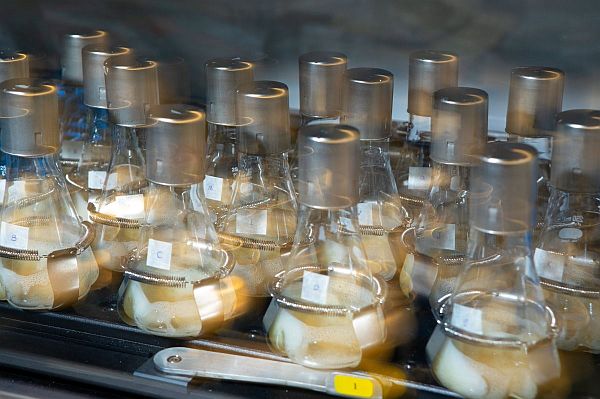
Sugar can be transformed into hydrocarbons found in gasoline
by feeding glucose to strains of E. coli that don't harm human health,
according to a study published Monday in the journal Nature
Chemistry.
"Making biofuels from renewable resources like glucose has great potential to advance green energy technology," lead study author Zhen Wang said in a press release.
"We combined what biology can do the best with what chemistry can do the best, and we put them together to create this two-step process," said Wanga professor and biochemist at the University of Buffalo.
Researchers used genetic engineering to convert E. coli microbes into a suite of four enzymes that convert glucose into 3-hydroxy fatty acids.
"These microbes are sugar junkies, even worse than our kids," Wang said.
Next, researchers used the inorganic compound niobium pentoxide as a catalyst to cut off unwanted parts of the fatty acids, generating a types of hydrocarbons called olefins.
Olefins are one of of several types of molecules that make up gasoline.
"Using this method, we were able to make olefins directly from glucose," Wang said. "Glucose is produced by plants through photosynthesis, which turns carbon dioxide and water into oxygen and sugar. So the carbon in the glucose -- and later the olefins -- is actually from carbon dioxide that has been pulled out of the atmosphere."
The new study marks an advance in efforts to create sustainable biofuels, but the researchers say more work is needed to determine if the new method could be scaled up efficiently to be practical for widespread use.
Sugars have previously been used to create other eco-friendly fuel options.
In 1978, under a Clean Air Act waiver, gasoline was permitted to contain 10% of the corn-derived ethanol, called gasohol or E10. Over time, most gas blends have come to be E10, according to the Environmental Protection Agency.
The EPA in 2011 approved a 15% blend referred to as E15 for use in model year 2001 and newer passenger cars, light-trucks and medium-duty vehicles under certain conditions.
In 2015, University of California, Berkeley, researchers created jet fuel from sugarcane biomass.

 Previous page
Previous page Back to top
Back to top







